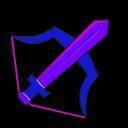How to Actually Get Into Programming?
-
Featured Topics
-
Topics
-
0
-
0
-
0
-
Joseph_Stalin ·
Posted in General Discussion3 -
Evan37 ·
Posted in New Builds and Planning5 -
IlanMS ·
Posted in Peripherals9 -
Frossty ·
Posted in Graphics Cards9 -
StephenB95 ·
Posted in Displays3 -
5
-
Foxique ·
Posted in Networking2
-



















Create an account or sign in to comment
You need to be a member in order to leave a comment
Create an account
Sign up for a new account in our community. It's easy!
Register a new accountSign in
Already have an account? Sign in here.
Sign In Now